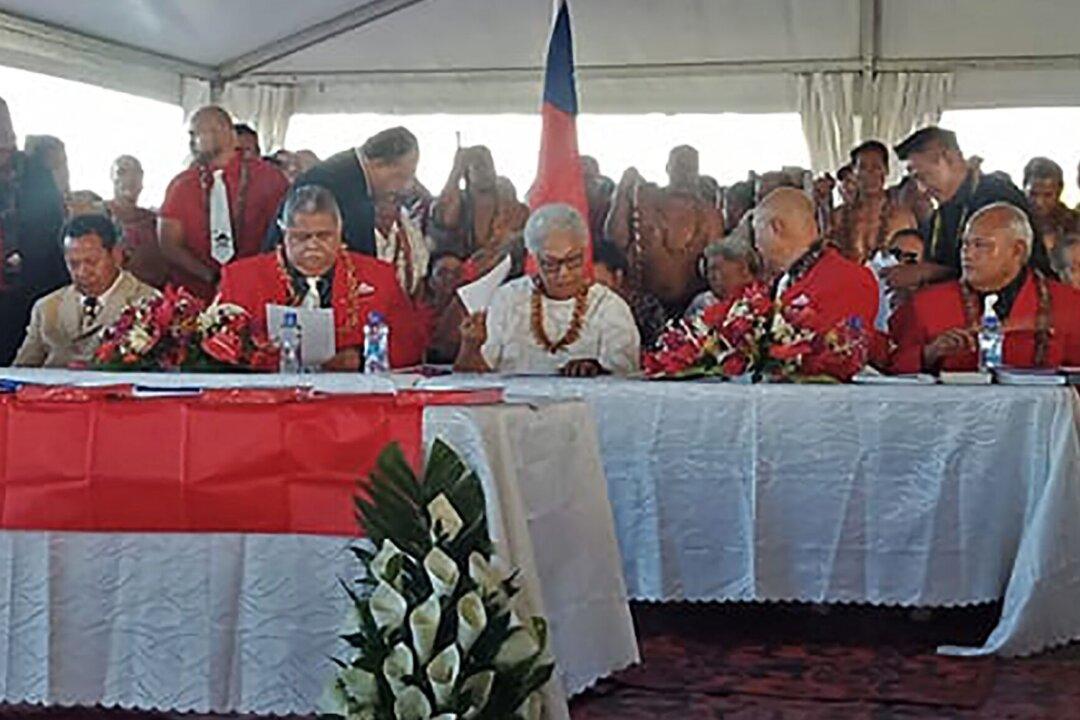Commentary
Samoa has canceled a $100 million port that China planned to build by loaning the cash-strapped nation. This is an about-turn for Samoa, which is rightly asserting independence and financial discipline when it comes to China’s opaque development loans.
On July 30, Reuters published an exclusive interview with Samoa’s new prime minister, Fiame Naomi Mata'afa, who confirmed the cancellation of the China-backed port construction.
Mata'afa implied that the port project lacked any fundamental benefits for Samoa, and said that China’s interest in the Pacific region grew as the United States “moved out” of the area. In the interview, which took place on July 28, she said, “There seems to be a renewed interest in the Pacific [by China], which may be a good thing, but not necessarily.”
Mata'afa had in May, before the election, told Reuters she would cancel the project due to excessive costs for a small nation that already carried heavy debts from China. China is Samoa’s largest creditor, having already loaned it $160 million, or 40 percent of its external debt. So, an additional $100 million would have significantly added to the country’s debt burden, and brought the Chinese percentage to 52 percent.
The Prime Minister has rightly followed through on her electoral mandate from Samoa’s citizenry to distance the country from Beijing, and just in time.
The proposed wharf was for Vaiusu Bay, and was a contested point in April’s elections, which Mata'afa won. The former prime minister, Tuilaepa Sailele Malielegaoi, had planned to go ahead with the Chinese project, despite an advisory from the Asian Development Bank that ruled a similar project as economically unviable.
Mata'afa told Reuters that the reason China takes the lead in development projects is because it provides the funding. “China just takes the forefront because of the nature of its being funded through China so there’s, you know, there’s a lot of infrastructure which other donors don’t do. There seems to be a big drive now you know in terms of ports, you know airports and seaports.”
China’s Belt and Road Initiative (BRI, also known as One Belt, One Road) has focused on building ports globally, stirring national security concerns among U.S. allies in Asia and Europe. A July report by defense analyst Ian Easton regarding Taiwan alleges that China is using its economic involvement in ports to gather military intelligence. BRI ports around the world have been used by China for military purposes, and do provide China’s navy with potential naval fueling and maintenance stations.
Mata‘afa explained the port cancellation, saying “I think as a new administration coming in we will do that [a reassessment] for China and any other partner that we have.” Mata’afa is making the right choices.
According to Alex Gray, National Security Council Chief of Staff in the prior administration, “Prime Minister Mata[’]afa is part of a new generation of Pacific Islands leaders who understand what China’s growing involvement in the Pacific has meant in reality: unsustainable debt burdens, political interference, and threats to sovereignty and political free expression. The Prime Minister is showing the region that a viable path exists away from Beijing’s malign influence and coercion and toward a free and open Indo-Pacific.”
China is not like any other country. It is a growing regional hegemon in Asia that could absorb Samoa’s sovereignty if the country is not careful. Samoa and other Pacific Islands countries are recognizing that China is a threat like none other, and should over time commit to only engaging with democratic countries that respect the rule of law, human rights, freedom, and the self-determination of not just states, but the people within those states. The success of democracies globally is the only way to ensure the defense of Samoa’s democracy locally.
Anders Corr has a bachelor’s/master’s in political science from Yale University (2001) and a doctorate in government from Harvard University (2008). He’s a principal at Corr Analytics Inc., publisher of the Journal of Political Risk, and has conducted extensive research in North America, Europe, and Asia. He authored “The Concentration of Power” (forthcoming in 2021) and “No Trespassing,” and edited “Great Powers, Grand Strategies.”





